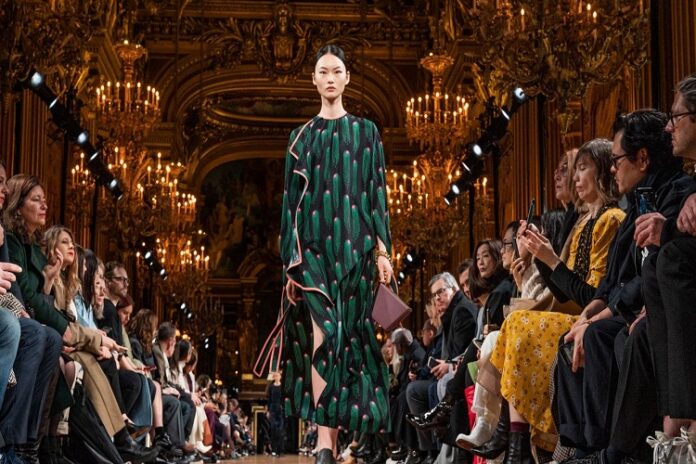In today’s digital age, technology has revolutionized almost every aspect of our lives, including the fashion industry. From design and production to marketing and retail, technology plays a crucial role in shaping how we create, consume, and experience fashion.
In this article, we will explore how technology has transformed the fashion industry, paving the way for innovation and providing exciting opportunities for both designers and consumers.
Technological Advancements in Design
Advancements in technology have transformed the design process in the fashion industry. Designers now have access to powerful computer-aided design (CAD) software to create intricate designs with precision and speed. These tools enable designers to experiment with patterns, colors, and materials, bringing their creative visions to life. Learn how you can make a difference through your fashion choices by learning about the latest innovations in sustainable fashion technology at SalonBlog.net.
Digital Prototyping and 3D Printing
Digital prototyping has emerged as a game-changer in the fashion industry. Designers can now create virtual prototypes of their designs, enabling them to visualize and make modifications before moving forward with production. Additionally, 3D printing technology has made it possible to create intricate and customized fashion pieces with greater efficiency, reducing waste and promoting sustainable practices.
Sustainable Fashion and Ethical Production
Technology has been pivotal in promoting sustainable fashion and ethical production practices. With the help of innovative materials and manufacturing techniques, designers can create eco-friendly and cruelty-free fashion items. By reading the insightful articles and wise advice offered on FashionTrendsLatest.com, you can gain the motivation you need to make the fashion business more environmentally friendly and ethical. Moreover, blockchain technology is being utilized to track the entire supply chain, ensuring transparency and fair treatment of workers.
E-Commerce and Online Shopping
E-commerce has significantly transformed the retail landscape, including the fashion industry. Online shopping platforms allow consumers to browse and purchase fashion items from the comfort of their homes, breaking geographical barriers and offering a wide range of choices. This shift has led to the emergence of new business models, such as direct-to-consumer brands, that cater to customers’ evolving needs and preferences.
Virtual and Augmented Reality in Fashion
Virtual and augmented reality technologies have revolutionized the way consumers experience fashion. Virtual reality allows users to immerse themselves in virtual fashion shows or try on clothes in a virtual environment, enhancing the overall shopping experience. Augmented reality, on the other hand, enables customers to try on virtual garments using their smartphones or AR devices, providing a personalized and interactive shopping experience.
Personalization and Customization
Technology has empowered consumers to personalize and customize their fashion choices. With the help of AI-driven algorithms and data analytics, brands can offer personalized recommendations based on individual preferences and purchase history. Customization options, such as made-to-measure garments or personalized accessories, allow consumers to express their unique style and create a more meaningful connection with the fashion they wear.
Social Media and Influencer Marketing
Social media platforms have become powerful tools for fashion brands to connect with their target audience. Influencer marketing has gained immense popularity, with fashion influencers showcasing the latest trends and styles to their followers. This form of marketing has increased brand awareness and reshaped the way consumers discover and engage with fashion.
Supply Chain Management and Logistics
Technology has streamlined supply chain management and logistics in the fashion industry. Technological advancements have improved the efficiency and speed of the entire process, from inventory management systems to automated warehouses and delivery drones. This has resulted in faster turnaround times, reduced costs, and improved customer satisfaction.
Artificial Intelligence in Fashion
Artificial intelligence (AI) is making significant contributions to the fashion industry. AI-powered algorithms can analyze vast amounts of data to identify consumer trends, predict demand, and optimize inventory management. Chatbots and virtual assistants are also utilized to provide personalized customer support, enhancing the shopping experience.
Wearable Technology
The fusion of fashion and technology has given rise to wearable technology. Wearable technology has become a popular trend, from smartwatches to fitness trackers and even smart clothing. These devices offer functionality and blend seamlessly with fashion, allowing individuals to express their style while staying connected and accessing various features.
Data Analytics and Consumer Insights
Data analytics has become a valuable tool for fashion brands to gain insights into consumer behavior and preferences. By analyzing data from various sources, including social media, e-commerce platforms, and customer feedback, brands can make informed decisions and develop strategies to meet the ever-changing demands of their target audience.
Cybersecurity and Anti-Counterfeiting Measures
As technology advances, so do the challenges related to cybersecurity and counterfeit products. The fashion industry has implemented robust cybersecurity measures to protect customer data and prevent unauthorized access. Furthermore, technologies like blockchain are being utilized to track the authenticity of luxury goods, reducing the prevalence of counterfeit items in the market.
Future of Fashion Technology
The future of fashion technology holds endless possibilities. Advancements in artificial intelligence, virtual reality, and sustainable materials will continue to reshape the industry. Innovations like smart fabrics, interactive clothing, and personalized virtual stylists will further enhance the fashion experience and push the boundaries of creativity. Uncover the exciting world of sustainable fashion and technology here FigDress.net, and get ideas for a cutting-edge and eco-friendly wardrobe.
Conclusion
Technology has become an integral part of the fashion industry, transforming how we design, produce, market, and consume fashion. Technology has empowered designers and consumers alike, from virtual reality fashion shows to personalized shopping experiences. As the industry evolves, embracing technology will be crucial for fashion brands to stay relevant, innovative, and sustainable.









